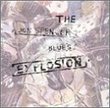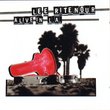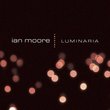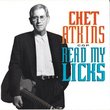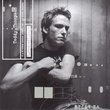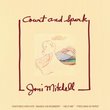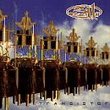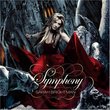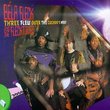| All Artists: Chris De Burgh Title: Crusader Members Wishing: 0 Total Copies: 0 Label: A&M Release Date: 10/25/1990 Genres: Pop, Rock Styles: Adult Contemporary, Progressive, Progressive Rock Number of Discs: 1 SwapaCD Credits: 1 UPC: 075021474628 |
Search - Chris De Burgh :: Crusader
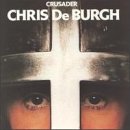 | Chris De Burgh Crusader Genres: Pop, Rock
The enduring singer/songwriter's 1979 album. |
Larger Image |
CD DetailsSynopsis
Album Description The enduring singer/songwriter's 1979 album. Similar CDs
Similarly Requested CDs
|
CD ReviewsWhen a Troubadour Was Still a Troubadour ... Themis-Athena | from somewhere between California and Germany | 04/02/2005 (5 out of 5 stars) "Once, there was a troubadour whose songs told stories about Country Churchyards and houses with Satin Green Shutters, about Lonesome Cowboys, Spacemen and Strippers, and about the devil cheating the Lord in a game of chess for the souls of humanity played on a Spanish Train. In those years, that troubadour's songs were simple, straightforward and enchanting, both musically and lyrically, and he published albums fittingly entitled "Far Beyond These Castle Walls," "Spanish Train and Other Stories" and "At the End of a Perfect Day." Then, he was discovered. And while (initially) his lyrics at least maintained their poignancy (see "The Getaway"), his music suddenly joined the flood waves of overproduced pop. But just before that point, in 1979, he released what many to this day consider his masterpiece; the album most pointedly embodying the tradition in which, if interviews he gave at the time were to be believed, he saw himself. Supported by the better part Alan Parson's "Project" (minus Parsons himself and Eric Woolfson) - guitarist Ian Bairnson, bassist David Paton, drummer Stuart Elliott and keyboardists Mike Moran and Andrew Powell, the latter of whom also served as the album's producer and conductor - he put together a collection of 12 songs in turn seducing, stirring and soothing the listener's soul. There are soft songs of love and loss like "I Had the Love in My Eyes," "Something Else Again," "It's Such a Long Way Home" and "Quiet Moments." There is the heartrending fairy tale of the "Girl With April in Her Eyes." There is De Burgh's bow to the era's "save the earth" movement, the rallying cry of "Just in Time". There is the sequel to the ghastly game of chess in "Spanish Train" (to which the song's lyrics expressly make reference), the dramatic story of "The Devil's Eye" gazing back at you from your TV screen. And there is a troubadour's look at "Old-Fashioned People" wishing to be carried back to the times and places that they knew. But the album's piece de resistance is its title track, an (especially considering the time of its release) epic, nine-minute long tale retelling the story of Richard the Lionheart's crusade; beginning quietly but rising to dramatic heights as the enemies face each other over Jerusalem, and yet, ending on a quiet, pensive note. True, the song's lyrics reflect enormous bias and are, at the very least, historically debatable; and the mere fact that the story is told from a crusader's point of view doesn't do anything to change this, for those who participated in the crusades knew better than to underestimate Saladin or put him down like this - the version we're getting here is the propaganda spread throughout Christian Europe in support of the campaign to "free" Jerusalem. But ultimately, I don't think this part of the song represents the point that Chris De Burgh wants to make. Rather, the song's most important lines are those of the last, reflective verses, which are well worth considering, particularly these days: "What do I do now?" said the Wise man to the Fool, "I have spent my whole life searching, to find the Golden Rule, Though centuries have disappeared, the memory still remains, Of those enemies together, could it be that way again?" Then the Fool said "Oh you Wise men, you really make me laugh, With your talk of vast persuasion and searching through the past, There is only greed and evil in the men who fight today, The song of the Crusader has long since gone away ..." The album's last song, "You and Me," is a short, gentle farewell: "The time has come for me to take my bows and leave the stage," De Burgh sings, and promises to return and again take his audience "through the ancient halls and stories of the past, and the many ways of loving." Well, return he certainly did, but would that he had remembered the rest of his promise as well! Alas, that was not to be the case. But even for those of us who think he later sold out, there are still his first four albums - and particularly this one - to turn to for enchantment, comfort, and exceptional storytelling ... Also recommended: Far Beyond These Castle Walls Spanish Train & Other Stories [IMPORT] At the End of a Perfect Day" Crusader - His Greatest Work acarin | Warminster, Wiltshire, UK | 04/14/2004 (5 out of 5 stars) "Crusader was the first album by Chris de Burgh that I ever heard, back in 1979, and I was an instant convert. While I love much of his early work, Crusader stands out by being consistently superb - it is very rare for me to find an album on which every song is worth listening to time and time again! From the poetic storytelling of the title track (historical accuracy aside, it is a wonderful piece of art to transform such a great story into a song), through to the Gaelic background vocals in 'Carry On', from the homesickness evident in 'Such A Long Way Home' to one of the best love songs ever ('Something Else Again'), the whole album is a tour de force. Anyone who is remotely interested in anything that Chris de Burgh has ever released should own this album!" The bard side of Chris de Burgh J. Houzet | Chicago, IL | 01/21/2006 (4 out of 5 stars) "My first exposure to the engaging music of Chris de Burgh was the song "Don't Pay the Ferryman" which was a radio hit around the world in the early 80s, but the first album by Chris that really appealed to me was Man on the Line, probably because I was only really getting into pop music at that time, 1984. I like virtually every song on that album. His greatest commercial success came with his next album, Into the Light, which I also greatly enjoy (yes, even the Lady in Red). I got to know some of Chris' earlier work through his greatest hits collection, Spark to a Flame. Although Crusader was overlooked for that compilation, I sought it out by reputation alone.
This album is much more low key than his later pop-rock efforts, most of the songs being gentle balladry that is reflective of its era. Even so, Chris de Burgh's musical style is unique. Not everyone can get into this type of music. Crusader not my favorite Chris de Burgh album, as I think he wrote more memorable and touching ballads on other albums (e.g., "In a Country Churchyard," "Where Peaceful Waters Flow," "The Head and the Heart," "For Rosanna"), but it is notable for its title track, an epic story-song that became an element of many of Chris' albums. You will find this kind of multi-part thematic epic on Into the Light as well, with the trilogy "The Leader/The Vision/What About Me?" And Spanish Train and other Stories has Chris' best collection of story-songs with its title track, "Just Another Poor Boy," and "A Spaceman Came Travelling." Chris often wrote songs with religious and even Christian imagery, rare for a secular artist. Crusader visits this theme on the aforementioned title track. Seeing as so many of the reviewers of this album felt compelled to offer apologies for, or even debunk, Chris' politically incorrect imagery of the war between the Crusaders and the Saracens over Jerusalem, I will comment here as well. The Crusades were not a Christian war of aggression against an otherwise peaceful Islam, they were a response to centuries of Muslim jihad that conquered North Africa and struck deep into Europe. It was only when Muslim control of the Holy Land led to the expulsion of Christian pilgrims and desecration of holy sites that the pope called for a crusade to reclaim the Holy Land. It's true that the crusaders did not always live up to their ideals of courage, honor and chivalry - they were men who lived by the sword and shed blood. But people should not be shocked that Chris's lyrics are less than kind to Saladin. He was a brutal leader, who delighted in slaughtering the inhabitants of Constantinople. In the first battle for Jerusalem (just prior to Richard the Lionhearted's crusade), Saladin showed mercy to its Christian inhabitants, but only if people could buy their passage out of the city, and because the knight Balian threatened to destroy the Muslim holy sites and put all Muslim inhabitants to the sword if Saladin persisted in his attack." |

 Track Listings (12) - Disc #1
Track Listings (12) - Disc #1
